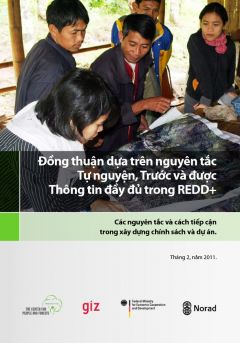Location
RECOFTC
RECOFTC is derived from an abbreviated form of the organization's legal name, Regional Community Forestry Training Center for Asia and the Pacific. Formerly the organization was known as RECOFTC – The Center for People and Forests.
RECOFTC – The Center for People and Forests is an international not-for-profit organization that focuses on capacity building for community forestry in the Asia Pacific region. It advocates for the increased involvement of local communities living in and around forests - some 450 million people in Asia-Pacific - in the equitable and ecologically sustainable management of forest landscapes.
The Regional Community Forestry Training Center for Asia and the Pacific (RECOFTC) opened in Bangkok, Thailand, in March 1987 with support from the United Nations Food and Agriculture Organization, the Government of Switzerland (through the Asian Development Bank), and Thailand's Kasetsart University.
Community forestry is widely acknowledged as a powerful solution for many of the challenges facing local people and the wider society, especially in improving rural livelihoods, enhancing community governance and empowerment, transforming forest-related conflict, protecting and enhancing the environment, and helping to fight climate change. As a capacity-building organisation, RECOFTC improves the ability of people and organisations to conduct community forestry effectively and sustainably.
RECOFTC works toward its mission through four thematic areas:
- expanding community forestry
- people, forests and climate change
- transforming forest conflict
- securing local livelihoods.
Members:
Resources
Displaying 371 - 375 of 485Đồng thuận dựa trên nguyên tắc Tự nguyện, Trước và được Thông tin đầy đủ trong REDD+
Cuốn sách hướng dẫn này cung cấp nền tảng cơ sở cho việc phát triển hướng dẫn quốc gia cụ thể về Đồng thuận dựa trên nguyên tắc Tự nguyện, Trước và được Thông tin đầy đủ trong REDD+.
Đồng thuận dựa trên nguyên tắc Tự nguyện, Trước và được Thông tin đầy đủ trong REDD+
Cuốn sách hướng dẫn này cung cấp nền tảng cơ sở cho việc phát triển hướng dẫn quốc gia cụ thể về Đồng thuận dựa trên nguyên tắc Tự nguyện, Trước và được Thông tin đầy đủ trong REDD+.
REDD-Net Asia-Pacific Bulletin #3: Carbon Rights and REDD+
REDD+ is based on the right to benefit from (or to be compensated for) reducing forest-based emissionsn of greenhouse gases, either through fund-based payments, carbon market payments, or a combination of these. But who can claim this right? Should an entitlement to payment depend on who owns the so-called "carbon rights"? This raises a number of legal issues, including how to define and allocate carbon rights in national REDD+ frameworks.
REDD-Net Asia-Pacific Bulletin #3: Carbon Rights and REDD+
REDD+ is based on the right to benefit from (or to be compensated for) reducing forest-based emissionsn of greenhouse gases, either through fund-based payments, carbon market payments, or a combination of these. But who can claim this right? Should an entitlement to payment depend on who owns the so-called "carbon rights"? This raises a number of legal issues, including how to define and allocate carbon rights in national REDD+ frameworks.
REDD-Net Asia-Pacific Bulletin #3: Carbon Rights and REDD+
REDD+ is based on the right to benefit from (or to be compensated for) reducing forest-based emissionsn of greenhouse gases, either through fund-based payments, carbon market payments, or a combination of these. But who can claim this right? Should an entitlement to payment depend on who owns the so-called "carbon rights"? This raises a number of legal issues, including how to define and allocate carbon rights in national REDD+ frameworks.



